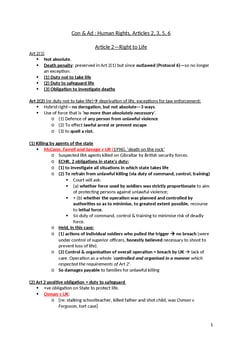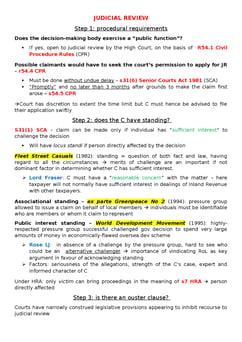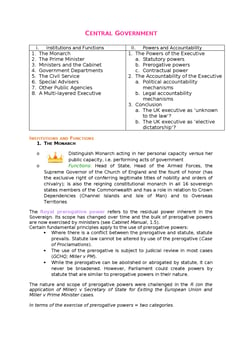R (Miller) v The Prime Minister [2019] UKSC 41; [2020] AC 373; [2019] 3 WLR 589; [2019] 4 All ER 299
Judgement for the case R (Miller) v The Prime Minister
Table Of Contents
KEY POINTS
The Prime Minister's decision to advise the Crown to prorogue Parliament for five weeks raised significant legal questions, especially given the uncertainty surrounding the UK's withdrawal from the EU.
The key issues included whether this advice limited parliamentary scrutiny at a critical constitutional juncture and whether it exceeded the bounds of legal prerogative power.
The debate centered on the decision's justiciability and whether it should be deemed unlawful, considering its potential impact on democratic processes.
There's a concern about whether Parliament can take action to nullify the prorogation and restore its functions. These discussions were guided by provisions such as Article 9 of the Bill of Rights (1688), emphasising the importance of parliamentary authority and checks on executive power.
FACTS
-
After failed attempts to secure Parliamentary approval for the negotiated withdrawal agreement with the EU, the UK extended its withdrawal date to October 31, 2019.
With a new Prime Minister in office, concerns arose that Parliament might be prorogued, limiting its ability to oversee government actions.
Several MPs petitioned the Court of Session, fearing an unlawful prorogation.
-
Despite these concerns, the Prime Minister advised the Queen to prorogue Parliament from September 9 to October 14, 2019.
In August 2019, anticipating that the Prime Minister might prorogue Parliament before October 31, thereby reducing its ability to respond to governmental actions leading up to the withdrawal, several Members of Parliament petitioned the Court of Session for a declarator that any such prorogation would be unlawful.
Before these proceedings reached a hearing, the Prime Minister advised the Queen to prorogue Parliament from September 9 and 12 until October 14, 2019.
The Queen made the order to prorogue as advised.
This decision faced legal challenges in both Scottish and English courts.
While the Divisional Court dismissed a judicial review claim, it allowed an appeal to the Supreme Court.
Arguments were made that any ruling against the advice given to the Queen could infringe Parliamentary privilege and violate Article 9 of the Bill of Rights of 1688.
JUDGEMENT
-
In a decisive ruling, the court found that the Prime Minister's advice to prorogue Parliament was unlawful.
This advice, which led to an extended prorogation, was deemed to have unduly hindered Parliament's constitutional functions without reasonable justification.
-
The court declared the prorogation null and of no effect.
Despite the political nature of the dispute, the court asserted its supervisory jurisdiction over executive decisions, emphasising the need for reasonable justification for actions impacting democracy's fundamentals.
This landmark judgment affirmed Parliament's essential role and limits the executive's prerogative power.
COMMENTARY
The Prime Minister's decision to advise the prorogation of Parliament amid Brexit uncertainty sparked intense legal scrutiny.
The ensuing debate revolved around crucial questions regarding the limits of executive power and the protection of parliamentary oversight.
Invoking Article 9 of the Bill of Rights underscores the foundational principles guiding these discussions, emphasising the significance of parliamentary authority.
The legal challenges against the prorogation decision highlight the tension between executive action and democratic processes. The courts' involvement signifies the judiciary's role in safeguarding constitutional principles, despite the political nature of the dispute.
Ultimately, the court's ruling striking down the prorogation as unlawful underscores the judiciary's commitment to upholding parliamentary sovereignty and checks on executive power.
This landmark judgment reaffirms Parliament's vital role and sets important precedents regarding the scope of executive prerogatives.
For Further Study on R (Miller) v The Prime Minister

A collection of the best GDL notes the director of Oxbridge Notes (a...

Constitutional Law notes fully updated for recent exams at Oxford an...
Need instant answers? Our AI exam tutor is here to help.
Ask questions 🙋 Get answers 📔 It's simple 👁️👄👁️
Our AI is educated by the highest scoring students across all subjects and schools. Join hundreds of your peers today.
Get StartedSimilar Cases
Related Product Samples
These product samples contain the same concepts we cover in this case.

